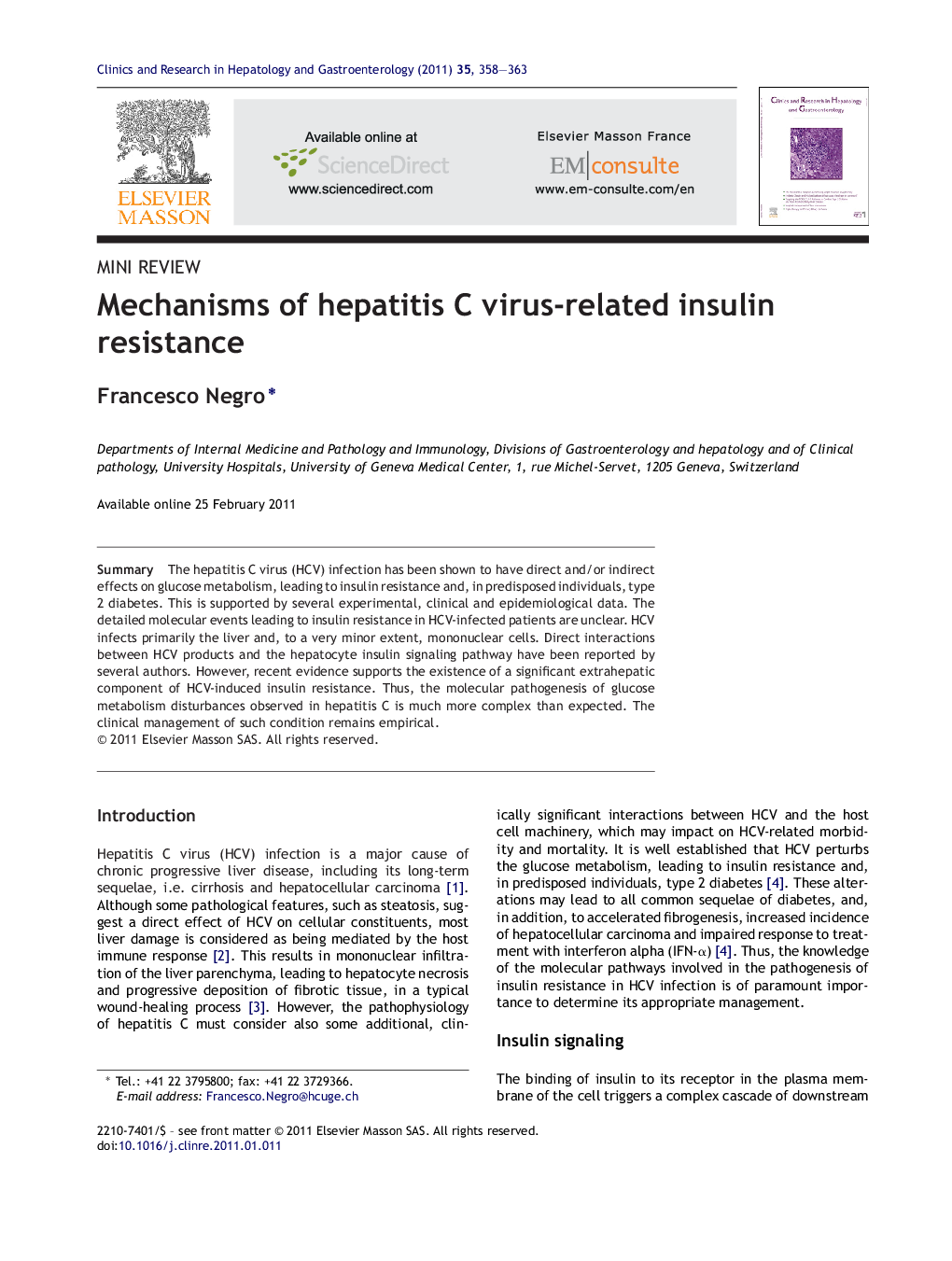| Article ID | Journal | Published Year | Pages | File Type |
|---|---|---|---|---|
| 3286547 | Clinics and Research in Hepatology and Gastroenterology | 2011 | 6 Pages |
SummaryThe hepatitis C virus (HCV) infection has been shown to have direct and/or indirect effects on glucose metabolism, leading to insulin resistance and, in predisposed individuals, type 2 diabetes. This is supported by several experimental, clinical and epidemiological data. The detailed molecular events leading to insulin resistance in HCV-infected patients are unclear. HCV infects primarily the liver and, to a very minor extent, mononuclear cells. Direct interactions between HCV products and the hepatocyte insulin signaling pathway have been reported by several authors. However, recent evidence supports the existence of a significant extrahepatic component of HCV-induced insulin resistance. Thus, the molecular pathogenesis of glucose metabolism disturbances observed in hepatitis C is much more complex than expected. The clinical management of such condition remains empirical.
